Heating, ventilation, and air conditioning (HVAC) systems are not just a luxury but a necessity, particularly in locations that experience extreme weather conditions. One challenge that homeowners face is dealing with the potentially high costs associated with maintaining these systems. But the good news is, there are ways to optimize HVAC systems to work more efficiently and help homeowners save money. Below are several strategies that can be both budget-friendly and rewarding in the long run.
1. Regular Maintenance: Regular maintenance is key to keeping your HVAC system running efficiently. This includes changing air filters every few months, cleaning the evaporator and condenser AC coils, and ensuring the area around outdoor units is clear of debris and vegetation. While there might be costs associated with regular maintenance, neglecting these simple tasks might escalate to costly repairs or replacements over time.
2. Smart Thermostats: Investing in a smart thermostat can be a game-changer when it comes to HVAC expenses. Smart thermostats allow for programmable temperature settings. For instance, you can easily adjust the temperature automatically when no one is home or during the nighttime. Some models are even equipped with learning capabilities, sensing your routine and preferences over time to manage your HVAC more efficiently.
3. Insulation and Weatherization: Proper insulation of your home can significantly improve the efficiency of your HVAC system. By preventing cool air from escaping during summer or warm air during winter, your HVAC system won’t have to work as hard to maintain a desirable temperature. Furthermore, weatherization measures such as sealing windows, doors, and gaps in the home can also prevent air leakage, enhancing HVAC efficiency and comfort.
4. Energy-Efficient HVAC Systems: If your current HVAC systems are old and inefficient, it might be wise to consider investing in energy-efficient models. Current HVAC technology offers features like variable speed motors, thermal zoning, and ductless systems that can operate at a fraction of the cost of older models. While the initial investment might be a bit hefty, the savings made from reduced energy consumption will make up for it in the long run.
5. Use of Energy Star Products: Energy Star-rated appliances, including HVAC systems, are certified to meet certain efficiency standards set by the U.S. Department of Energy. So, purchasing an energy star-rated HVAC system can also be a wise move towards maximizing efficiency and savings.
6. Install Ceiling Fans: Ceiling fans can be used to supplement your HVAC system. During summer, they can circulate cool air, reducing the need for air conditioning. During winter, they can push warm air down, reducing the need for heating.
7. Limit Use of Exhaust Fans: While exhaust fans in your kitchen or bathroom are helpful in getting rid of unwanted smells or excess moisture, they also pull out the heated or cooled air. Limiting your use of these fans can help retain conditioned air in your home for longer.
Remember that the choice and the efficient use of an HVAC system ultimately depend on various factors. These include the size and design of your house, your heating, and cooling requirements, local climate, and more. Therefore, it is advisable to consult with an HVAC professional who can provide you with informed advice on the optimal solution for your needs.
In conclusion, improving the efficiency and cost-effectiveness of your HVAC systems does not necessarily mean giving up home comfort. With a few strategic decisions and regular maintenance, it is certainly possible to maximize the efficiency of your HVAC system while ensuring it remains budget-friendly.

